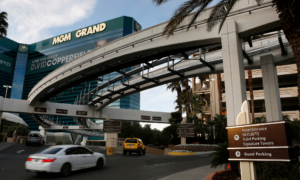
In 2020, the coronavirus has forced casino operators to adapt in unexpected ways. These corporations have shifted their strategies to include new systems, aiming to ensure guests feel comfortable within the casino premises.
Visitors will observe that modifications have already been implemented across the casino environment. Over the past year, casinos have introduced more touch-free innovations. Casino-based hotels now enable guests to check-in using a kiosk or mobile device. Additionally, some dining establishments within the casinos provide mobile reservations, menus, and the option to order through mobile devices.
Casino floors are adding more electronic table games to support social distancing measures. An increasing number of casino operators are introducing cashless gaming, eliminating further human contact, whether a player is using an ATM or giving cash to a dealer or machine.
The digital transformation on the casino floor will persist.
Moving forward with cashless gaming
J. Brin Gibson, the new Chairman of the Nevada Gaming Control Board, aims to promptly address some of the issues that have arisen for Nevada casinos over the previous year.
Gibson shares the following thoughts on cashless gaming systems in an interview with the Las Vegas Review-Journal:
“He stated, ‘This place is teeming with opportunities. I am not one to just trudge along, I prefer tackling major challenges and devising solutions for them. This is unquestionably one of those situations.'”
Funding gambling activities is made simple through cashless wagering. There is an expected massive increase in demand for this. From a regulatory perspective, we advocate for cashless wagering in some form as it significantly simplifies activity tracking.
The concept of cashless gaming isn’t novel in Nevada. However, advocates against problem gaming have expressed resistance towards this idea. Despite the concept progressing, some concerns still persist.
Concerns regarding cashless gaming and its potential effects on problem gamblers are valid, as the ease of money access could pose a problem for some. The Nevada Gaming Commission (NGC) has consistently been meticulous, albeit somewhat slow, in approving new casino technology.
Gibson acknowledges the need for a compromise and is prepared to devise a cashless solution for Nevada casinos in the near future. He conveyed this to the LVRJ, stating:
I won’t be causing a major disruption to this industry, as that would be unwise. However, I intend to improve it, and that will require implementing some changes.
He ended by saying, “So expect some change.”
Cashless gaming already available in some Nevada casinos
In 2020, cashless gaming began to be introduced in Las Vegas casinos. Some properties of Station Casinos implemented the PlayOn cashless gaming system by AGS. This system is accessible at selected table games.
Later in the year, Circa, The D, Golden Gate, and The Strat casinos also added the PlayOn system, following the lead of Station.
The PlayOn point of service system, while convenient, is not without its flaws. The convenience comes at a cost as users are required to pay a fee to access the service. Although the fee structure may vary across properties, it typically includes a flat fee of $4 and a daily transaction fee of 2.5%.
Ellis Island successfully tested Marker Trax last year, a system with a unique fee structure that differs from the norm.
Marker Trax has been installed at The Strat, enabling the north-end Vegas Strip casino to provide cashless options for table games and slot machines. The owner, Golden Entertainment, plans to implement this feature in other Las Vegas casinos too.
“Marker Trax offers convenience and security by enabling players to access an approved credit line in minutes. It also eliminates the need for physical cash and interaction with multiple personnel,” stated Gary Ellis, the owner of Ellis Island Casino, Hotel & Brewery.
Ellis informed the Las Vegas Sun that 30-40 casinos have registered to provide the Marker Trax service.
These casinos may be pioneering cashless gaming, but they certainly won’t be the only ones.
More cashless gaming options coming
Several leading gaming manufacturers appear to have technology ready for implementation in Nevada casinos.
Everi is responsible for numerous ATMs in today’s casinos. They offer a range of cashless gaming solutions, and their CashClub Wallet is already being utilized by casinos in Florida and Oklahoma.
Scientific Gaming and IGT, both manufacturers of slot machines, have cashless gaming systems for casinos. IGT received regulatory approval from Nevada earlier this month.
Station Casinos has been utilizing IGT’s cardless loyalty system for several years now. Therefore, it wouldn’t be shocking if they decided to implement the new cashless gaming solution for their slot machines. This would provide Station Casinos with a unified solution for both table games and machines.
Thanks to their pre-existing relationships, the large firms providing cashless gaming solutions could introduce this technology to major casino operators on the Vegas Strip. It won’t be long before more casinos start offering this form of technology.
Actions speak louder than words
The first attempt of the year to expand cashless gaming was rejected by the NGCB.
Sightline Payments requested the NGC to modify a regulation last year, which would have permitted the company to introduce digital payment solutions throughout the United States. However, their request was rejected.
This would have permitted gamblers to set up and finance mobile sports betting accounts from a distance, unlike the cashless gaming solutions mentioned before.
Sightline’s co-founder, Omer Sattar, states:
Regarding remote registration, Sightline currently has not requested any regulatory changes in Nevada.
Nevada, despite being one of the few states that permit mobile sports betting apps, does not allow mobile registration.
There is no indication of when this issue might be revisited. Registration for mobile sportsbooks is a contentious issue for gaming companies. This matter ought to be further investigated in the future.







